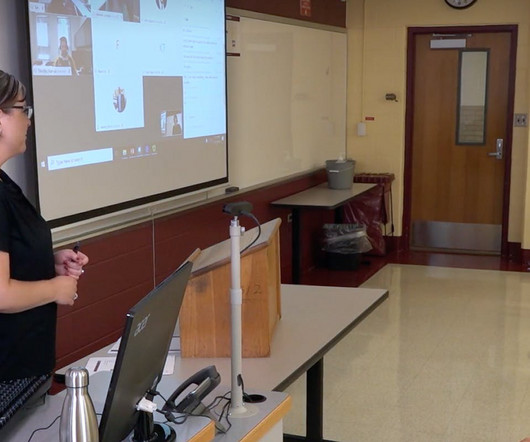Online Teaching Is Improving In-Person Instruction on Campus
Edsurge
FEBRUARY 22, 2024
"Face-to-face instruction is no longer the gold standard." — Steven Goss, chair of Management and Technology in the business programs at NYU’s School of Continuing Studies Actually, the phenomenon predates the pandemic. Each week, I’d assign several lectures I’d recorded earlier on video. It’s a message I’ve been arguing for a while.












Let's personalize your content